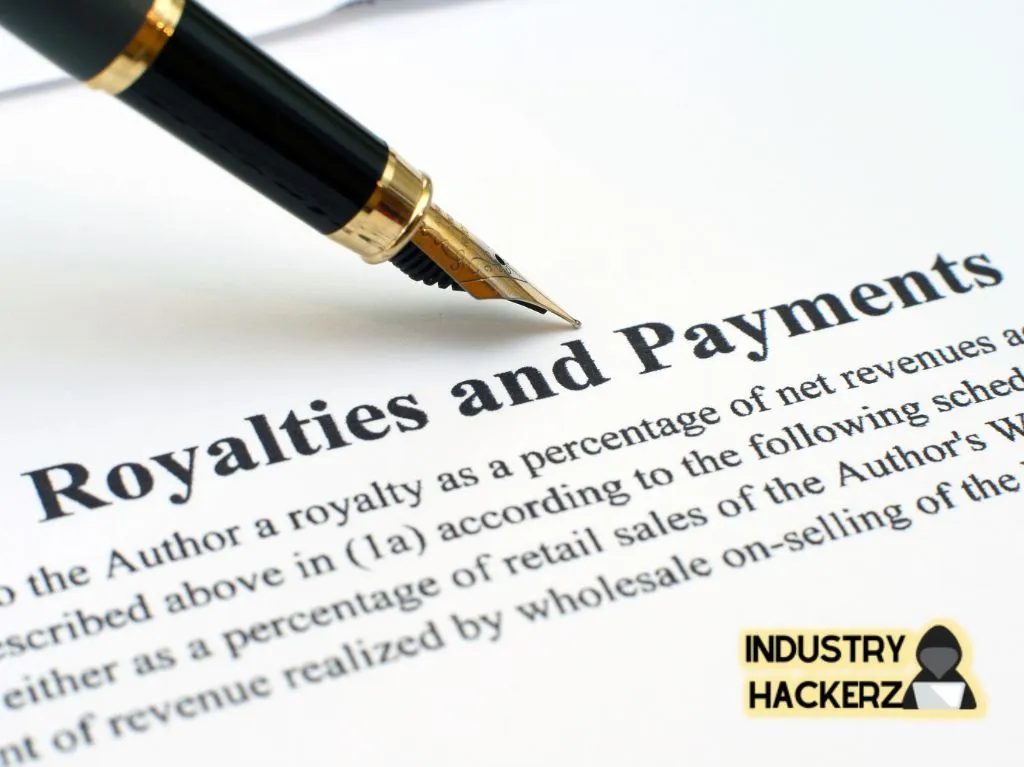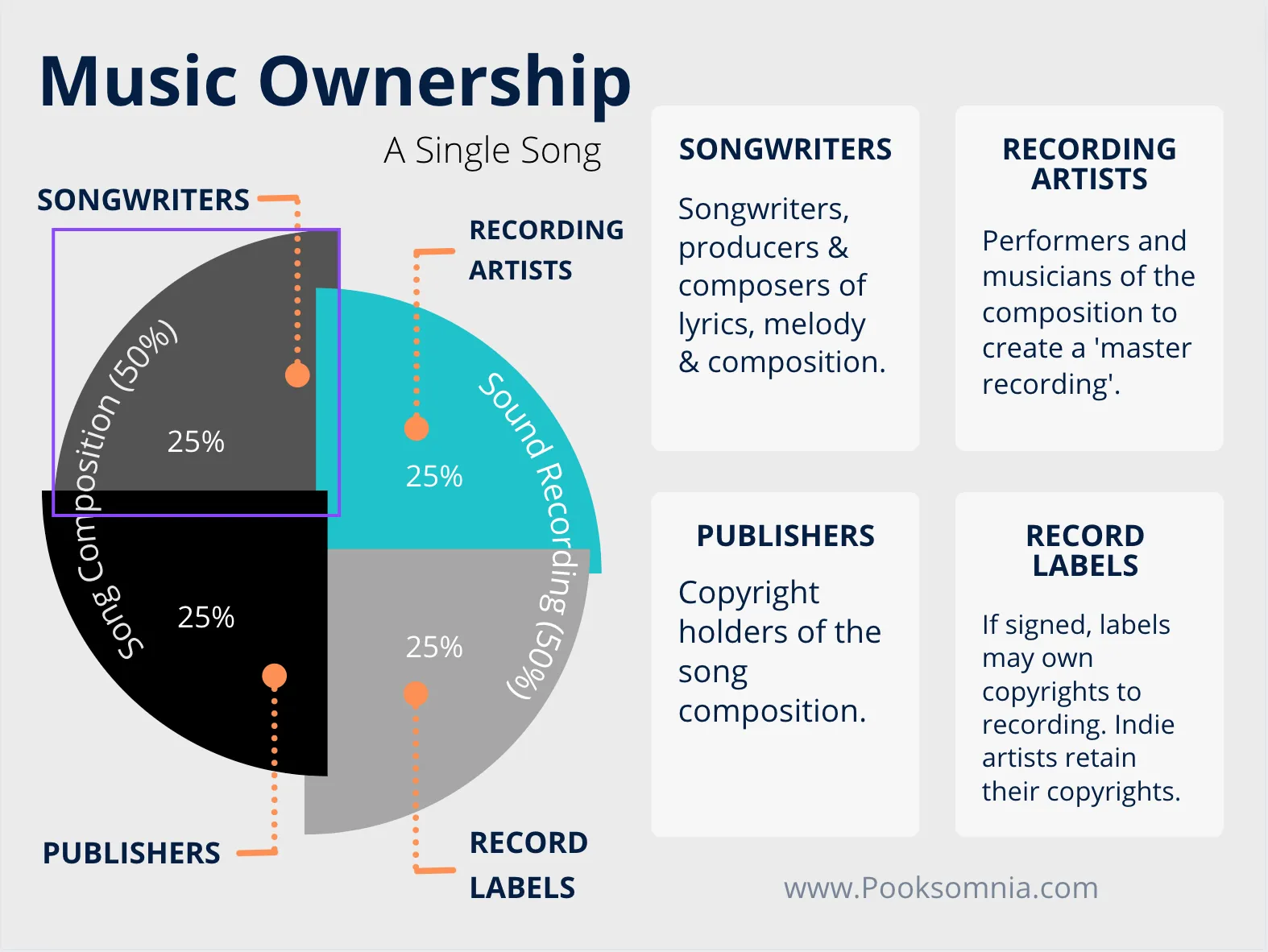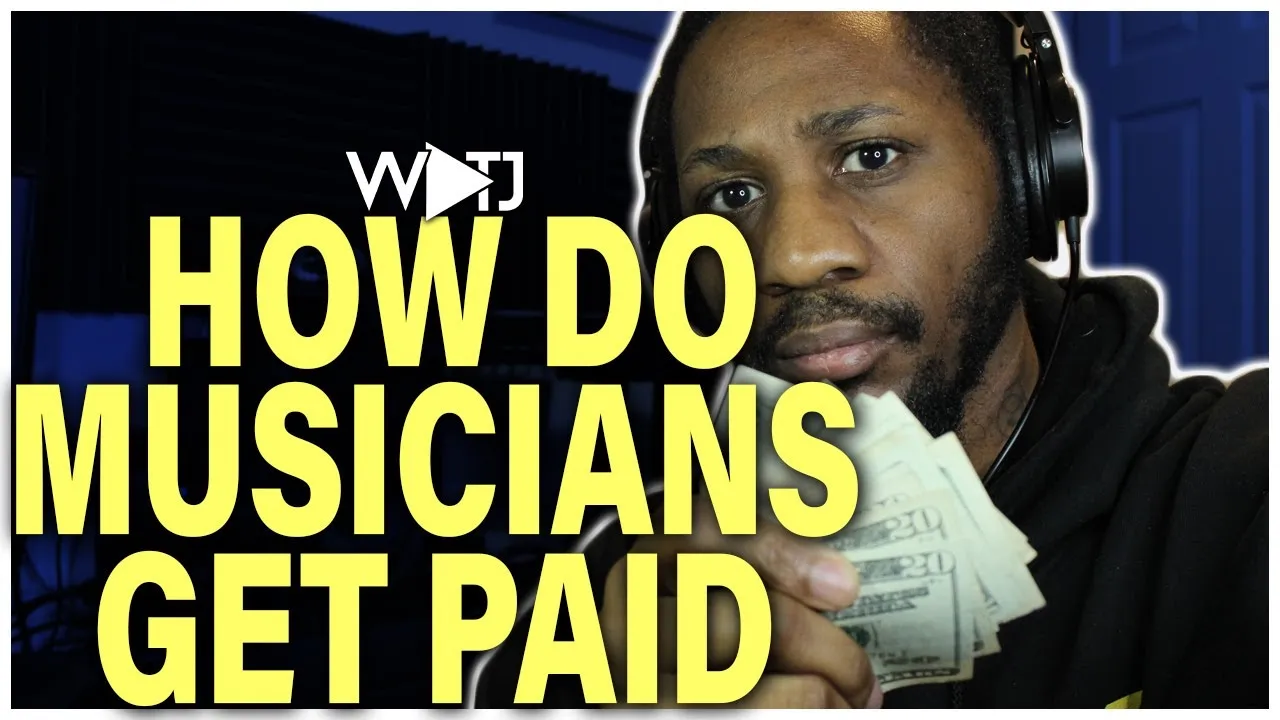When diving into the world of freelance music on platforms like Fiverr, one question often lingers in the minds of both musicians and buyers: do Fiverr musicians get royalties? Understanding how royalties work is crucial not just for creators, but also for those who hire them. This post aims to clarify what royalties are, how they impact musicians on Fiverr, and what buyers should keep in mind before hiring a freelancer for their musical needs.
What Are Royalties?

Royalties are payments made to creators for the use of their original work. In the music industry, royalties come into play whenever a song is played, streamed, broadcast, or used in any way that generates revenue. Think of it like a thank-you payment every time someone enjoys a musician's creation! Here’s a breakdown of how royalties generally work:
- Types of Royalties: There are several types of royalties that musicians can earn, including:
- Mechanical royalties: Payments for the reproduction of a song, like when it's sold on a CD or streamed on platforms like Spotify.
- Performance royalties: Earnings from live performances or when a song is played on the radio.
- Synchronization royalties: Fees paid for using a song in television shows, movies, commercials, or video games.
- Who Pays Royalties? Typically, royalties are paid by:
- Record labels and music publishers
- Streaming services like Spotify, Apple Music, or YouTube
- TV networks and production companies
- Importance for Musicians: Getting paid royalties provides musicians a continuous income stream, allowing them to sustain their artistic careers.
In summary, royalties are essential for compensating musicians for the hard work and creativity they pour into their music. This is where things get a bit tricky for Fiverr musicians, and we'll explore that further in this discussion.
Also Read This: What is a Social Media Kit on Fiverr?
The Fiverr Platform Explained

Fiverr is an online marketplace that connects freelancers with clients who need various services. It’s like a digital playground for creative professionals and those seeking their expertise. Launched in 2010, Fiverr has grown massively, offering a wide range of categories—especially for musicians and producers. But how does it work?
At its core, Fiverr operates on a gig-based structure. Here’s how it breaks down:
- Service Listings: Musicians create “gigs” that outline the services they offer, such as composing original tracks, providing background music for videos, or mixing and mastering audio.
- Price Points: Freelancers set their prices, starting as low as $5. However, many offer premium packages that can go up to hundreds or even thousands of dollars, depending on their expertise and the complexity of the project.
- Client Engagement: Clients can browse these gigs, read reviews, and communicate with musicians before making a purchase. This builds a personal connection and helps clarify expectations.
- Transaction Security: Fiverr ensures a safe transaction by holding payments in escrow until the service is delivered satisfactorily.
The platform also promotes feedback and ratings, encouraging musicians to maintain high quality in their work. This mutual feedback loop helps foster trust and reliability in the Fiverr community. For musicians, it’s a great way to reach potential clients worldwide, allowing them to showcase their talents and earn income while doing what they love.
Also Read This: What is Sales Copy in Fiverr?
How Musicians on Fiverr Get Paid

Understanding how payment works on Fiverr is crucial for musicians considering whether to join the platform. Once a client purchases a musician's gig, the process of getting paid kicks in. Here’s how it typically unfolds:
- Payment Processing: When a client orders a gig, Fiverr processes the payment upfront. This means the musician doesn’t have to worry about chasing after clients for payments later on.
- Service Delivery: After the musician completes the project and delivers it to the client, the client reviews the work. If they’re satisfied, they approve the order, and the earnings are released to the musician (minus Fiverr’s commission).
- Fiverr’s Commission: It’s essential to remember that Fiverr takes approximately 20% of the total earnings as a service fee. For example, if a musician sells a gig for $100, they'll receive around $80 after the commission.
- Withdrawal Options: Once the payment is processed, musicians can withdraw their funds through various methods like PayPal, bank transfer, or Fiverr’s own Revenue Card. However, keep in mind there’s a waiting period (usually 14 days for new sellers) before the funds become available for withdrawal.
Overall, Fiverr offers a transparent and structured payment system, enabling musicians to focus on their art while handling the business side seamlessly.
Also Read This: How to Promote Your Fiverr Gig: Bangla Tutorial
Do Fiverr Musicians Earn Royalties?
When you think about Fiverr musicians, you might wonder if they earn royalties for their work. The short answer is that it depends on several factors. Most Fiverr musicians typically work on a freelance basis, selling their services for a flat fee rather than earning ongoing royalties. This means that once you pay them for a commissioned piece, the upfront payment is generally all they receive. However, let's break this down further.
On Fiverr, musicians often offer a variety of services, such as:
- Custom songwriting
- Instrumental tracks
- Mixing and mastering
- Vocal performances
Most of these services come with clear ownership terms outlined in the gig description. Typically, once a customer pays for a service, they gain the rights to use the music without any obligations to pay royalties. So, if you've commissioned a song or a jingle, you can use it freely without owing the musician any further payments.
However, exceptions can exist. Some musicians may negotiate additional royalties or licensing agreements for their works, particularly if the piece is being used commercially or with considerable reach. It’s essential for both the musician and the buyer to communicate openly about usage rights to avoid any misunderstandings later on.
Also Read This: How Do I Report My Fiverr Taxes?
Factors Affecting Royalty Earnings
Understanding whether Fiverr musicians earn royalties also involves considering various factors that can influence their potential earnings. Here are some key points to think about:
- Type of Service Offered: Musicians who create original pieces might have more room to negotiate royalty agreements compared to those offering standard production services.
- Usage Rights: The way a commissioned piece is used can greatly affect income. If a piece becomes popular and is used in commercial settings, the musician could leverage this into a royalty deal.
- Artist's Reputation: Well-known musicians may have more negotiating power and might secure royalty arrangements due to their established following.
- Licensing Agreements: Some Fiverr musicians may offer licensing options for their work, which could include royalties based on the earnings generated from the music.
- Market Trends: The demand for certain types of music can influence how musicians price their services and negotiate royalties. A growing trend in a specific genre could lead to better revenue for musicians.
Ultimately, while Fiverr musicians predominantly earn upfront fees, those who actively manage their rights and seek out royalty opportunities may find ways to incorporate ongoing income into their careers. It's all about the approach they take when working with clients and how they value their creative output.
Also Read This: How to Edit Your Fiverr Profile Name: A Step-by-Step Guide
How to Ensure You Receive Royalties as a Musician
As a musician, ensuring you receive royalties for your hard work is essential. After all, your creativity deserves financial recognition. Here are some key steps you can take to secure your royalties:
- Register Your Music: Always register your songs with a performing rights organization (PRO) like ASCAP or BMI. This is the first crucial step in ensuring that any public performance or broadcast of your music is tracked, and you receive the compensation you deserve.
- Understand Licensing Terms: When using platforms like Fiverr, ensure you fully understand their licensing agreements. Some agreements may specify that you waive your rights to royalties in exchange for a one-time payment. It’s important to read the fine print!
- Use Digital Distribution Services: Platforms like DistroKid or TuneCore can help you distribute your music across streaming services. They also manage royalties on your behalf, making sure you get paid when your music is played.
- Keep Track of Your Work: Maintain a detailed catalog of your music, licensing agreements, and royalty statements. This information will empower you in case any discrepancies arise regarding payments.
- Network and Collaborate: Building relationships with other musicians can help you understand industry standards related to royalties. Joining communities on social media or in local events can open avenues for collaboration that may also lead to shared royalties.
By taking these proactive steps, you will greatly improve your chances of receiving the royalties you rightfully earn as a musician.
Also Read This: How to Work as a Freelancer on Fiverr
Alternatives to Fiverr for Musicians Seeking Royalties
Looking for alternatives to Fiverr to secure your creative rights and earn royalties? No worries! There’s a whole ecosystem of platforms tailored specifically for musicians like you. Here’s a list of some solid options:
- SoundBetter: This platform allows musicians to connect with other industry professionals. You can find producers, mixers, and session musicians. What’s great is that you can negotiate terms that respect your rights to royalties.
- Bandcamp: A go-to platform for many indie artists, Bandcamp allows you to sell your music directly to fans while retaining all your rights and royalties. You can determine pricing, and fans can choose to pay more to support you!
- AirGigs: Similar to Fiverr, AirGigs focuses more on the music industry. This platform allows musicians to offer services like recordings and songwriting, with clearer terms regarding royalties.
- Patreon: A subscription-based platform, Patreon lets your fans support your music directly. You can offer exclusive content, which can generate consistent income while keeping your rights intact.
- Amuse: This free music distribution service allows you to release your music across major streaming platforms while retaining 100% of your royalties. Plus, you can leverage their marketing support to help your music reach a wider audience.
Each of these platforms provides an alternative way to market your music while ensuring that you have a solid grip on royalty rights!
Do Fiverr Musicians Get Royalties?
When it comes to the world of freelance music services, Fiverr has emerged as a popular platform for both musicians and clients seeking musical compositions. However, a common question arises: Do Fiverr musicians earn royalties from their work? The answer is nuanced and depends on various factors. Below, we explore the key aspects of this topic.
1. *Understanding Royalties: Royalties are payments made to creators for the use and distribution of their work. In the music industry, these can come from streaming services, radio play, live performances, and more.
2. Fiverr's Model: On Fiverr, musicians offer services such as composing, recording, and producing music. Typically, clients pay a one-time fee for these services. This means that:
- No Automatic Royalties: Musicians generally do not receive ongoing royalties from works sold on Fiverr.
- Ownership Rights: Upon payment, clients usually receive full ownership rights to the music, allowing them to use it however they wish.
3. Agreements and Contracts*: While the standard Fiverr agreement may not include royalties, musicians can negotiate different terms with clients. This could include:
| Type of Agreement | Potential Royalties |
|---|---|
| Custom Contract | Possible royalties, depending on negotiation |
| Standard Fiverr Sale | No royalties |
In conclusion, while Fiverr musicians typically do not earn royalties under the standard payment model, they can explore custom agreements with clients for potential earnings. It is essential for musicians to clearly communicate and outline the terms of use and compensation before finalizing any project to ensure mutual understanding and satisfaction.



